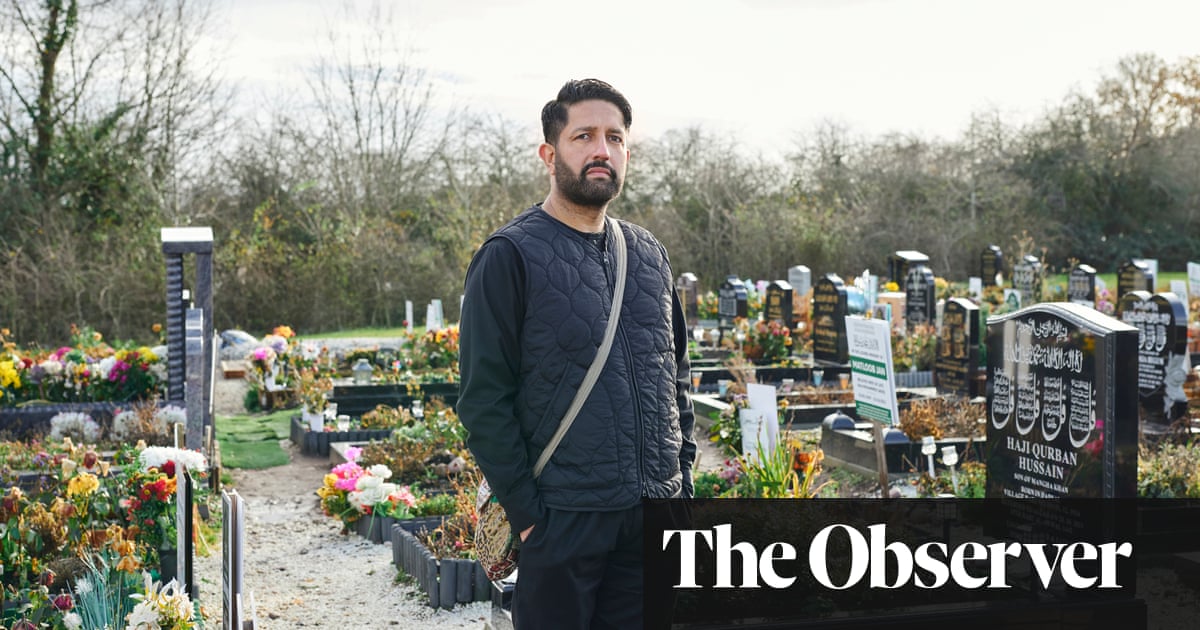
he inventor of the cassette tape, Lou Ottens, has died, aged 94. It’s quite a moment for those of us whose youths were defined by the humble mixtape, the ecstasy and the agony of all those unspooling C90s and twisted-up C60s.
I take that back: there was nothing humble about the mixtape. A great mixtape was a work of art, requiring focus and vision. The careful selections. The all-important order. The different-coloured pens. The naming of the tape across the spine (felt-tip, bubble graphics, perhaps a tragic years-too-late anarchy symbol). Occasionally, you’d find old, cracked cases in your pocket, or at the bottom of bags, sometimes in two pieces, like a broken heart, and you’d scan titles, wincing at Former You’s poor choices. The Bangles slapped next to Wire? Was I some kind of monster? I say “attention to detail”, you say “clear signs of neuroticism bordering on sociopathy”, and maybe we’re both right.
Now there’s Spotify but, back then, mixtapes were the ultimate expression of the high-voltage, gloriously unreasonable teenage brain. They represented hinterland (“This is who I am and I should probably apologise for that”); dexterity (finger poised to turn the record button on and off at the right moment); criminality (if home taping was killing music, we all had blood dripping from our hands); frustration (your mum boiling a kettle halfway through a track); and, of course, romance: the giving/receiving of a mixtape was the supreme heartfelt gesture, the sonnet of its time, albeit one that sometimes ended in heartbreak and pettiness: “I don’t like you any more. Give me my tape back.”
Mixtapes allowed music fans to be their own superstar DJs and, crucially, they were all about autonomy. You could slip a tape into your machine of choice (tinny tape recorder, dinky Walkman, full-throated ghetto blaster) and go wandering, anywhere you liked. In this way, the mixtape was as portable as a good book. If you got it right, it was equally inspiring, an anthology of sound.
With all this going on, it would be easy to get stuck in the thick dust of tech nostalgia, though Ottens wasn’t overly sentimental about cassettes. He was also involved in developing CDs, and considered them far superior, though I was never sure about that. CDs didn’t scratch? Pfft, they did once I’d drunkenly dropped them on the floor and staggered over them a few times. Does it really matter, the format that music (and memory) comes in? Years ago, I found a carrier bag of old mixtapes. It was like the opening scenes of Chernobyl – the stuff of fag ash, cider and nightmares. I needed tongs to touch them; I’d have required vaccinations to play them. Into the bin they went with a fond laugh: “You were played. You were loved. Goodbye.”
RIP, Mr Ottens. Your contribution was music to the ears.
Netflix should be a little more caring about sharing
Netflix looks set to crack down on several people sharing one password across friends and family. It’s testing a verification code system to check that password-holders live in the same household. Which Netflix has every right to do. It’s a business in an increasingly competitive arena; it needs people to pay for content. However, the timing sucks.
In January, Netflix hit 203 million global subscribers and it hasn’t done so badly out of lockdown. Talk about a captive audience! To its credit, Netflix has delivered. In terms of entertaining the nation, it, and other streaming services, could be viewed as the fourth emergency service. However, with many people struggling, perhaps, customer relations-wise, it could hold off about passwords until lockdown properly lifts.
Look at the Morrisons supermarket group. Despite higher sales its profits halved and it has fallen out of the FTSE 100 share index. However, the CEO, David Potts, says he wears that as a “badge of honour” because, as well as not holding on to £230m of government business relief, unlike other supermarket groups, Morrisons focused on keeping stores open, protecting and supporting staff and giving discounts for NHS workers.
Good attitude, Morrisons, and one your customers should appreciate. Stay classy, Netflix.
The trick of being both a mother and a performer
Happy Mother’s Day to singer Paloma Faith, now a mother of two. A forthcoming BBC documentary, Paloma Faith: As I Am, will show her struggling to be a mum as well as an artist: trying to record and perform, while also attempting to look after her children. This isn’t because Faith is surrounded by Evil People straight out of showbiz central casting, but because the demands the music industry places upon artists are generally so extreme that something has to give and the thing that tends to give is the mother and child.
If that sounds dark, that’s because it is. The pop business doesn’t care about performers being mothers – it just wants them to be profitable. Given all the terrible things happening to the music industry during lockdown, it’s sobering to think that some female artists may be quietly relieved about this one aspect – not having to go on tour when they have small children to care for.
What’s more, there’s all that chauvinist tosh about female artists being less sexy and marketable after they’ve had kids. While the Unsexy Dad label doesn’t seem to get slapped on to male performers quite so much, even very successful mothers in the music industry have been made to feel past it and therefore paranoid. Thus they’re encouraged to work even longer, pout even harder, to prove that they’ve “still got it”, “it”, by that time, being unmanageable stress levels.
Bear in mind that Faith is a platinum-selling act, whose needs would be acknowledged more than less established performers. It’s no surprise to hear that the music industry is tough, nor that it’s tougher on women. Bravo to Faith for making it clear that it’s toughest of all on mothers.
Barbara Ellen is an Observer columnist












